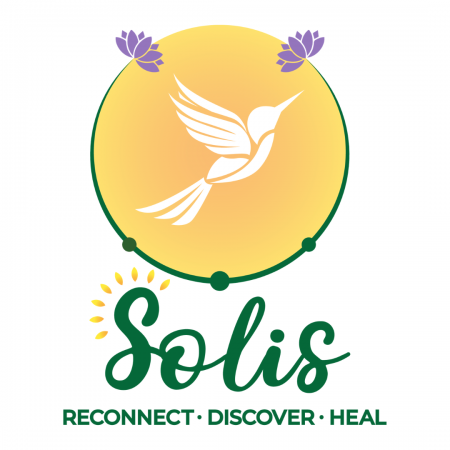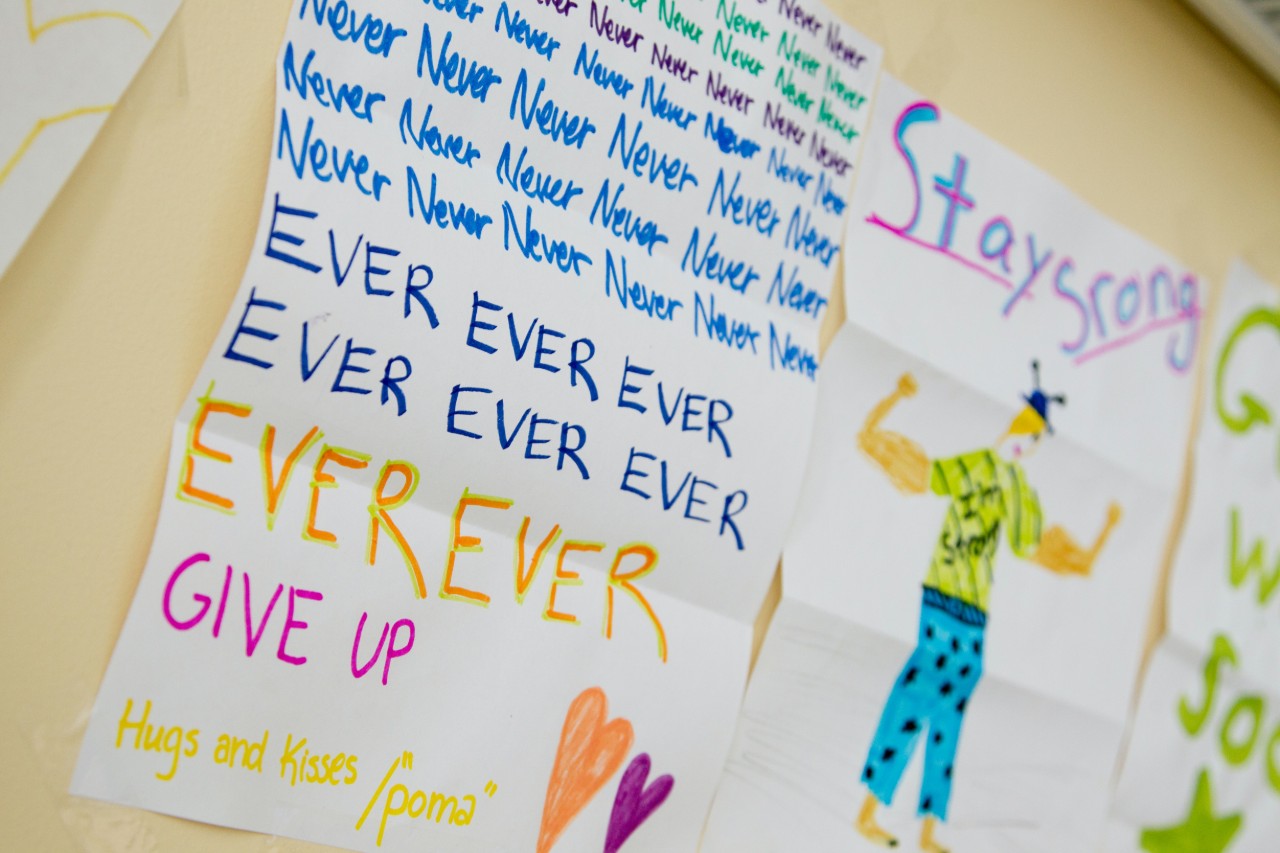Last week, I talked about some of the more obvious things from the experience of a cancer patient that we can look to for tips on getting through the COVID-19 pandemic (find that Part 1 post here). Then there are the less visible or obvious things, which are all of those that fall under the mental and emotional health category, because man-oh-man do we need support in these areas now more than ever.
Feel gratitude for the little things. Developing a gratitude practice was so important to my recovery, and it’s something many cancer patients can’t help but do. Going through cancer makes you appreciate what you have. You may not be around all of your family or in your usual work routine. You may be missing your hobbies that take you outside of the house or wishing you could see your friends. Those all definitely suck and are very valid things to be upset about, but focusing on the negative will only amplify it. Make a list every day of 5 things you are grateful for and try not to repeat. This will keep your mind focused on what you do have instead of what you can’t have right now.
 Having cancer gives us the knowledge that we can do hard things. It gives us a belief in and evidence of our strength. The current situation is hard for different reasons, but knowing I got through cancer makes it easier to get through this because it makes me believe I can. You may not have gone through cancer, but everyone has gone through something difficult in their life. Reflect on, journal about, or discuss with your quarantine buddy how you have proven throughout your life that you can do hard things, and call on that strength and assurance now.
Having cancer gives us the knowledge that we can do hard things. It gives us a belief in and evidence of our strength. The current situation is hard for different reasons, but knowing I got through cancer makes it easier to get through this because it makes me believe I can. You may not have gone through cancer, but everyone has gone through something difficult in their life. Reflect on, journal about, or discuss with your quarantine buddy how you have proven throughout your life that you can do hard things, and call on that strength and assurance now.
We have lots of practice at tempering our absorption of the emotions of those around us. I am reminded here of an incredibly brave stand-up set done by Tig Notaro four days after she was diagnosed with breast cancer. A woman in the audience looked back at her in horror upon hearing this news, and Tig said something to her along the lines of, “It’s gonna be okay, it’s gonna be okay! It might not be okay, but you’re going to be okay. I don’t know what’s going on with me, but you’re going to be okay”. I feel that as cancer patients, we have to learn how to not absorb the panic and fear other people experience upon hearing our diagnosis or, in this case, while trying to get through an unprecedented global pandemic. And that is exactly what we need to do now. Panic and fear feed more panic and fear, so try as much as possible not to let more of these emotions creep into you from the outside world. Doing things like limiting how much time you spend discussing the current situation and not watching more of the news than you have to in order to stay on top of how things are evolving can really help with this.
 We learn the importance of prioritizing our mental and emotional health and discover the tools to do so. Self-care is just. So. Important. And taking care of your mental and emotional health is at the top of the self-care list. Most of us have a lot of time on our hands at the moment. Some of us are busier than we have ever been (thank you essential workers!). Whatever your time budget is right now, make sure you leave room in it every day for things that support your mental and emotional health. Exercise, meditation, reading, hobbies, funny shows or podcasts, playing with your kids, having a phone call with a friend, taking a bath, dancing around your apartment cos no one is watching; these are all wonderful things you can do to take care of yourself and your health.
We learn the importance of prioritizing our mental and emotional health and discover the tools to do so. Self-care is just. So. Important. And taking care of your mental and emotional health is at the top of the self-care list. Most of us have a lot of time on our hands at the moment. Some of us are busier than we have ever been (thank you essential workers!). Whatever your time budget is right now, make sure you leave room in it every day for things that support your mental and emotional health. Exercise, meditation, reading, hobbies, funny shows or podcasts, playing with your kids, having a phone call with a friend, taking a bath, dancing around your apartment cos no one is watching; these are all wonderful things you can do to take care of yourself and your health.
We are forced to get used to dealing with fear and uncertainty and processing negative emotions like anger and resentment. There isn’t a cancer patient past or present who hasn’t dealt with heaps of these emotions; they are a given part of the experience and don’t let up once treatment is over. Cancer is the epitome of fear and uncertainty, and a diagnosis most often brings anger and resentment, and I’m sure COVID-19 is providing its fair share of these too. Dealing with these emotions looks different for everyone, and some people are better at processing them than others, but there are a few things that may help you. Journaling about the emotions you are experiencing will help you get them out and start processing them in a healthy way instead of letting them fester below the surface. Talking to friends or family about what you are going through and commiserating will help you feel less alone. Fostering or adopting a pet can provide a lot of comfort. Doing things that you love and can do from home will bring you joy and combat the negativity. Remind yourself of all the good in your life and focus on those positives. Try not to let your mind spiral into thoughts of the future; we don’t know what will happen, but worrying about it won’t stop it or change it, so cross those bridges if you get to them and focus on the present moment as much as possible. Dream about what you will do once you are able to and make plans for actually doing them. I personally feel like everyone can benefit from therapy, and there are so many practitioners who are offering online counselling right now, so there has never been a better time to try it out. Most importantly, try lots of different tactics and find what works best for you.
 And of course, we have lots of practice focusing on, generating, and holding onto hope. Hope is likely the best tool in a cancer patient’s toolkit; without it, we would be lost to depression and defeat and despair, to that terrifying question, “What if?”. What if? Well, what if not? It goes back to what I said about not letting your mind spiral into the dark potential of the future. We don’t know what is to come, but that means it could be just as likely the best outcome possible as something worse than that, and having hope is all about holding onto the belief that it will work out for the greatest possible good. It’s not always easy, in fact lots of times it’s downright hard, but we have already proven that we can do hard things, this included. Hold on tight to the hope that this will soon be over, that we will come through this as a stronger global community, and never let it go.
And of course, we have lots of practice focusing on, generating, and holding onto hope. Hope is likely the best tool in a cancer patient’s toolkit; without it, we would be lost to depression and defeat and despair, to that terrifying question, “What if?”. What if? Well, what if not? It goes back to what I said about not letting your mind spiral into the dark potential of the future. We don’t know what is to come, but that means it could be just as likely the best outcome possible as something worse than that, and having hope is all about holding onto the belief that it will work out for the greatest possible good. It’s not always easy, in fact lots of times it’s downright hard, but we have already proven that we can do hard things, this included. Hold on tight to the hope that this will soon be over, that we will come through this as a stronger global community, and never let it go.
…
And I think this is the ultimate lesson, one of the most important that cancer taught me: no matter how awful, challenging, draining, and life-altering an obstacle might be, there is always a benefit it will bring too. There will always be a light side to the dark. It most likely won’t be visible at the beginning; things are too painful and chaotic and you can barely see beyond the next minute let alone to months or years from now. But, with time, you will find the ways that your past challenges are serving you now. Whether they have equipped you with knowledge, tools, or good habits; with strength, perseverance, or a more positive mindset; or whether they simply provide the evidence that you have gotten through difficult things before and so you will again, your challenges can serve your present and your future in so many ways. One day, you will be able to look back on this time and say, “As terrible as it was, I’m so glad I was able to get _____ out of that time”. You may not be able to see it yet, but I promise, the light is coming.
Happy Healing ❤️




0 Comments
Trackbacks/Pingbacks